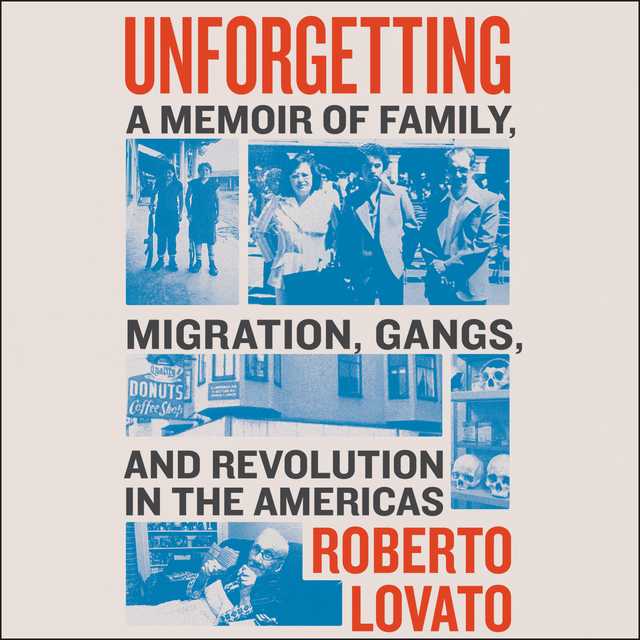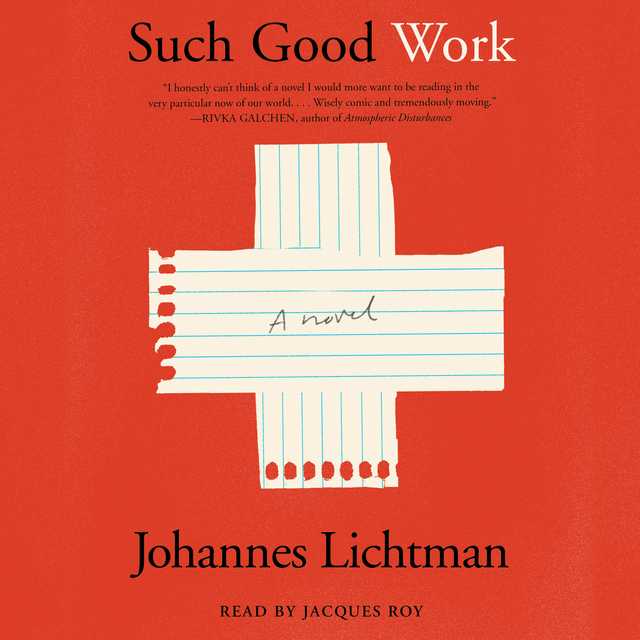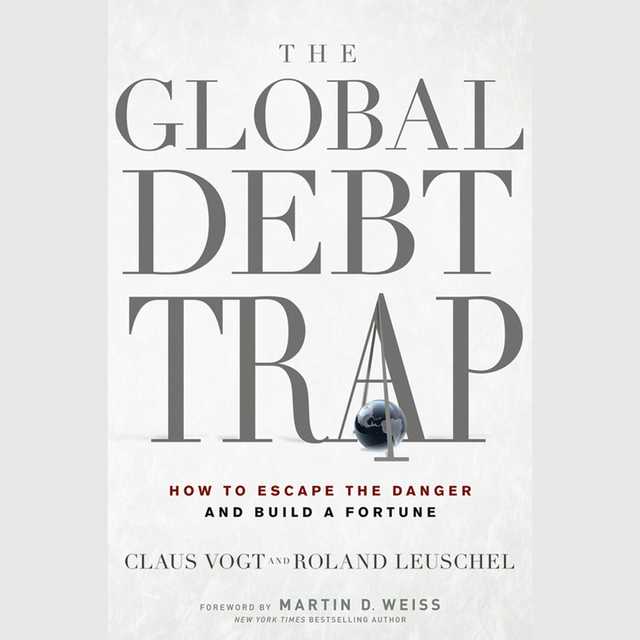Unforgetting Audiobook Summary
A The Millions Most Anticipated Book of the Year
“Gripping and beautiful. With the artistry of a poet and the intensity of a revolutionary, Lovato untangles the tightly knit skein of love and terror that connects El Salvador and the United States.” –Barbara Ehrenreich, author of Natural Causes and Nickel and Dimed
An urgent, no-holds-barred tale of gang life, guerrilla warfare, intergenerational trauma, and interconnected violence between the United States and El Salvador, Roberto Lovato’s memoir excavates family history and reveals the intimate stories beneath headlines about gang violence and mass Central American migration, one of the most important, yet least-understood humanitarian crises of our time–and one in which the perspectives of Central Americans in the United States have been silenced and forgotten.
The child of Salvadoran immigrants, Roberto Lovato grew up in 1970s and 80s San Francisco as MS-13 and other notorious Salvadoran gangs were forming in California. In his teens, he lost friends to the escalating violence, and survived acts of brutality himself. He eventually traded the violence of the streets for human rights advocacy in wartime El Salvador where he joined the guerilla movement against the U.S.-backed, fascist military government responsible for some of the most barbaric massacres and crimes against humanity in recent history.
Roberto returned from war-torn El Salvador to find the United States on the verge of unprecedented crises of its own. There, he channeled his own pain into activism and journalism, focusing his attention on how trauma affects individual lives and societies, and began the difficult journey of confronting the roots of his own trauma. As a child, Roberto endured a tumultuous relationship with his father Ramon. Raised in extreme poverty in the countryside of El Salvador during one of the most violent periods of its history, Ramon learned to survive by straddling intersecting underworlds of family secrets, traumatic silences, and dealing in black-market goods and guns. The repression of the violence in his life took its toll, however. Ramon was plagued with silences and fits of anger that had a profound impact on his youngest son, and which Roberto attributes as a source of constant reckoning with the violence and rebellion in his own life.
In Unforgetting, Roberto interweaves his father’s complicated history and his own with first-hand reportage on gang life, state violence, and the heart of the immigration crisis in both El Salvador and the United States. In doing so he makes the political personal, revealing the cyclical ways violence operates in our homes and our societies, as well as the ways hope and tenderness can rise up out of the darkness if we are courageous enough to unforget.
Supplemental enhancement PDF accompanies the audiobook.
Other Top Audiobooks
Unforgetting Audiobook Narrator
Roberto Lovato is the narrator of Unforgetting audiobook that was written by Roberto Lovato
Roberto Lovato is a journalist and a member of The Writers Grotto. He is one of the country’s leading writers and thinkers on Central American gangs, refugees, violence and other issues. Lovato is also a co-founder of #DignidadLiteraria, the national movement formed to combat the invisibility and silencing of Latinx stories and books in the U.S. publishing industry. He is also recipient of a reporting grant from the Pulitzer Center and a former fellow at U.C. Berkeley’s Latinx Research Center. His essays and reporting have appeared in numerous publications including Guernica, Boston Globe, Foreign Policy, Guardian, Los Angeles Times, Der Spiegel, La Opinion, and other national and international publications. He lives in San Francisco.
About the Author(s) of Unforgetting
Roberto Lovato is the author of Unforgetting
More From the Same
- Publisher : HarperAudio
- Abraham
- American Gods [TV Tie-In]
- Dead Ringer
- House of Sand and Fog
- Prey
Unforgetting Full Details
| Narrator | Roberto Lovato |
| Length | 8 hours 46 minutes |
| Author | Roberto Lovato |
| Category | |
| Publisher | HarperAudio |
| Release date | September 01, 2020 |
| ISBN | 9780062939036 |
Subjects
The publisher of the Unforgetting is HarperAudio. includes the following subjects: The BISAC Subject Code is Emigration & Immigration, Social Science
Additional info
The publisher of the Unforgetting is HarperAudio. The imprint is HarperAudio. It is supplied by HarperAudio. The ISBN-13 is 9780062939036.
Global Availability
This book is only available in the United States.
Goodreads Reviews
Shawna
September 06, 2020
One of the best books I've read this year. Lovato weaves together his story, his father's story, his father's father's story, and of course, the stories of the women who loved them, seamlessly into this novel that is part memoir, part history lesson, and part social criticism. There are several important messages - about generational trauma, American imperialism, and so much more - that are very relevant given today's climate. I speak no Spanish and I've never been to El Salvador. I went into this book with no understanding or inclination of what I was about to read. As the daughter of immigrants who has felt the tug between the country I was born in and the countries of my parents, though, I could understand so much of Lovato's inner struggle. As an International Relations student and lover of all cultures and travel, this book took me on a journey from my home in California to El Salvador and back in the midst of a pandemic. There are a lot of heavy topics covered, so I hesitate to call the book an escape, but it was an adventure. I almost guarantee you will walk away with new knowledge or perspective. Highly recommend. Give it a try.
Lupita
October 09, 2020
UNFORGETTING: A memoir of family migration, gangs, and revolution in the Americas by Roberto Lovato is probably one of the most in-depth & ground shaking memoirs I have read in a while. Lovato peels through the history of El Salvador, the country from which his parents are from, exposing how the roots of that history have dug deep within his family. How that history contributes to their family dynamics all while meticulous detailing how his country of birth, U.S.A, has contributed to that history. As a journalist, Lovato does not withhold any details of the systemic violence in El Salvador and provides a deeply full & often disturbing depiction of it. The way he writes about the dual cultures he belongs to and loves is not only admirable it will be healing for anyone to read that lives in that in-betweenness.There’s so much this book left me with & that I want to praise. What I mainly connected with was Lovato’s ability to connect with his history & how it’s molded his upbringing, the ways it’s hurt his family, and the trauma it’s built that he tackles through in this book. It’s a reminder that genetics can’t tell us about the stories and trauma passed down from generations. Lovato’s memoir to me is an opening for Latinx readers to seek out more knowledge of the countries our parents once called home. Having that knowledge might create the ability to break through cycles of trauma.
Charlie
January 02, 2021
I was a little thrown off by the opening anecdote about Lovato's father coming at him with a machete in the first chapter (his father was suffering from dementia at that point), but after finishing the book it struck me as a brilliant way to open a memoir that eventually stitches together -- re-members -- pieces of his own life, and describes how he eventually comes to understand his father's personal history and its connection to traumatic historical events. My own recollection of the book is already a bit choppy. But a few things : * I finally learned that many words I've learned in course of my own travels through Central America (althought I never made it to Salvador) actually came from Calo - a once secret insider lingo first developed by the Roma people. ("orale" "vato" etc.) * The "Mara" in "Mara Salvatrucha" (MS-13) -- the infamous gang -- originally had nothing to do with gangs. It actually came from "marabuntas," a fictitious species of flesh-eating army ants that director Byron Haskin invented for "The Naked Jungle," a movie starring Charlton Heston. In the 1970s and 80s, a small clique of heavy metal listening Salvadoran youth in the Pico Union Westlake district of L.A. started calling themselves "maras." When they started using machetes to defend themselves against other gun-wielding gangs (Crips, Bloods, Mexican Mafia) the media that -- as the gang itself became more violent -- gained its own sinister infamy. The way Lovato bounces around (chapter-by-chapter) between differtent places and times in his life (along with a few historical interludes) kind of makes the point that history often has to be pieced together to make a coherent whole. Memories -- personal and historical -- are so often hacked up (macheted) into so many seemingly separate pieces that its obscures the connections and throughlines, making it so difficult to amend or heal. What connects La Matanza (the infamous 1930 massacre) to El Mozote (the 1980 massacre under the dictatorship of General Martinez) -- and the current FMLN's cover-ups and enabling of modern death quads (the opposite of the FMLN of the 1980s and 1990s, when so many men and women died in the fight against the death squads and fascist dictatorship that deployed them) is a cycle of violence: "Forgetting begets forgetting begets ongoing mass murder." It is a matter of choice and law (a legacy of colonial genocide?) and not some inevitable result of national character. "Unforgetting" is an early step in trying to breatk the cycle. Which will not be easy. It was shocking to learn how FMLN government officials and gangleaders perpetuate the cycle, living "in a garden of immunity" thanks to a 1993 amnesty law originally intended to protect right-wing ARENA Party members who had committed atrocities during the civil war. And as Lovato points out -- that erasure of responsibility for crimes against humanity goes back to La Matanza: In 1932 General Martinez signed his own law granting "unconditional amnesty to those functionaries, authorities, employees and agents of the state and any other civilian or military person that appears esponsible for infractions of the law." In a country that literally buries its own history in mass graves, forensic anthropologists may be among the country's most important historians. Journalists like Lovato, too, are critical to the process "unforgetting" (re-membering). If the profession weren't an act of resistance and courage then why are so many journalists assassinated every year? Otra cosas:* We have our own historical forgetting that is also connected to violence, including America's role in training Salvadoran death squads. And the blowback that has occurred when the military not only offloads its surplus weaponry on local police departments, but brings its failed theories of counter-insurgency home, applying them to the poor and especially immigrants. (For the full treatment see Stuart Schrader's "Badges Without Borders: How Global Counterinsurgency Transformed American Policing" and Radley Balko's "Rise of the Warrior Cop"). I don't think I knew until Lovato pointed it out that after the 1992 L.A. Riots precipitated by the police assault on Rodney King, Bill Barr (Iran-Contra Bush's attorney general) was instrumental in the shifting treatment of gangs as inner city insurgencies in need of a more militarized response. Is it an accident of history that the protests against police brutality erupted into a full-blown movement while Barr was once again AG for a white supremacist-backed mobster president?
Jim
September 11, 2020
The Saving of a People Just a few days ago I read a two-part interview of Roberto Lovato by Amy Goodman via Democracy Now - one the most trustworthy news online outlets from the US and thought immediately of one of my old middle school students in Australia from 30+ years ago who had married someone born in California of exiled El Salvador background - I had been told something of gangs and displacement - worse than most immigrant or refugee exile experiences with which I am in some ways familiar. This book is a chronicle and is both sad and uplifting - from a growing understanding of being somehow broken - the author tracks aspects of his own life and that of his parents and before them, the treatment of the first peoples of El Salvador, of the children born out-of-wedlock to the country’s landed first families - the land theft and massacres - the involvement by the US in training and supervising those doing the massacring - and worst of all the criminalising upon entry into the US of those fleeing the death and violence aided and supervised - and the ugliness of the present US Attorney-General BARR in militarising police forces... the telling shifts across periods of time back-and-forth over almost a century - reflecting the manner in which the author was coming to understand events, going back in the light of more and more recent knowledge to reinterpret. It is masterful. In Australia - we see similar ugly things happening - a Homeland Affairs Minister demonising particular more recently arrived immigrants groups - locking up asylum-seekers -and children - seemingly without censure from his political buddies - and from the so-called opposition - apart from point-scoring in parliamentary debate - it’s all a game, apparently - and these things include torture, murder, and suicide. It is happening! This is a powerful snd moving testament of how one man put back together all the fragments and redeemed a national reputation. Bravísimo, Roberto! Bravísimo. Éste libro es muy, muy importante! Vea!
Andrés
September 23, 2020
As a high school kid I would ask my family to take me to bookstores while on summer trips to El Salvador, whether it was La Ceiba or the bookstore at the UCA campus, eager to get my hands on history books on the civil war, 1932, or Monseñor. I wanted to get more of a context for the stories I had heard from my relatives. I found a few along the way, but what I noticed was that most were pretty dry academic texts. The color was missing, I couldn’t see the scenes inside my head. The info was there, yet still slightly out of reach.Reading “Unforgetting” was another type of experience. Not only do you get a crash course in Salvadoran history in the 20th Century, but you get a social, personal, and familial context for each time period described in the book.I could see parallels to my own family: broken families, hijos ilegítimos, indigenismo and the erasure of our roots and identity during Martínez, as well as the strength of matriarchs, the resilience of our people to keep moving forward and find stability whether within or outside El Salvador’s borders.This book is an invitation to meditate on the fact that our lives are impacted by actions and decisions and events that transpired well before our own births, and how by looking back and “unforgetting” them, we can heal, grow, understand ourselves and our loved ones better.
Adam
January 17, 2021
Well-written and very original memoir by a second generation El Salvadoran, coming to terms with the violence that has shaped his ancestral land, his home country, and his own family, for generations. Lovato takes a non-linear journey through his own life and his father's life, starting with the "la matanza" ethnic cleansing massacres of 1932, through the El Salvadoran civil war of the 80s and 90s, up to the present day. The author himself goes through dramatic and unexpected changes as he slowly reconciles his U.S. upbringing with his El Salvadoran heritage and discovers that "unforgetting" is the best way forward.
Vanessa
November 04, 2021
Brilliant! Thought provoking but also funny and poignant.
Esta
August 23, 2020
In the late 1990s, I taught a class of Latinx students, most of whom were born in the US to Salvadoran parents who had left war torn El Salvador, either as young adults or teens. My students knew nothing about Salvadoran history; their parents simply did not discuss it. They knew terms like "guerrilla" but had no idea what it meant - to them, all people who fought were "guerrilla".I decided to teach them Salvadoran history through novels by Salvadoran writers. The experience was eye opening for them, but also traumatic, as they started putting pieces together in terms of their families' behaviors and stories that they had heard. This book brought me back to that time. Lovato tells a poignant narrative of what Salvadorans went through not only in El Salvador, but as Salvadorans in the US. He tells the reader what it is like to live on the border - with a foot in each country, yet without really understanding what this means, just like my students. He underscores the nature of keeping secrets, and how once revealed, can be painful yet freeing. The explanations (and misconceptions) around gangs, namely the "Mara" are compelling and further illustrate how pain can be translated into action, albeit not always for good.The writing in this book sometimes is too much telling and not enough showing. Nonetheless, it is a powerful read which I highly recommend,.
Jan
May 12, 2021
Had this book not come recommended by a good friend, I wouldn't have picked it up, but she has steered me to other excellent books in the past, so I took a chance.This memoir deals with very serious issues (see the subtitle), but it is personal as well as political, and Lovato is a great storyteller, who put himself very much in harm's way to uncover the story. The son of immigrants from El Salvador, he knew very little of his family background and in reaction to the secrecy, he got involved in stealing, drugs, and general bad actor stuff in San Francisco, where his family had settled, involved to some extent in their own illegal activities. Unforgetting refers to learning about the things that have been hidden away and the understanding and freedom that comes from that pursuit. The details of the random massacres of the indios (indigenous) people and anyone suspected of communist leanings in El Salvador are stomach-churning, but it was well worth it to learn far more than I had known about the trials and graces of Salvadorans at home and in the U.S.
Briayna
October 14, 2020
A personal, raw, and detailed read. An eye-opening learning experience. The Spanglish was a bonus for my ears. It’s a bit graphic (possibly triggering for some) sometimes, but the details are important. I appreciated the parsing out of his Indigenous heritage, and how they were specifically persecuted. He goes through his life of being in the US, going back to El Salvador, and returning to the US. There are many layers about community, the complexity of livelihoods, why people flee/seek asylum, and how some get caught up.
Jalinne
September 05, 2020
Being Salvadoran American (whatever that means) I have never read a book that honors our history quite like this book. I see so many parallels between Hector’s family and mine. illegitimate children left to fed for themselves, absentee fathers, the resilience of Salvadoran women.
Rosi
October 28, 2020
A personal account of how intergenerational trauma, the politics of civil war and ultimately love bridge the divide between the author and his father.
Celeste
January 31, 2021
This entire book is jaw-dropping. I don't know how else to describe it. Roberto Lovato has written a perfect book interweaving his personal family history, the history of El Salvador, of the United States' disturbing involvement in El Salvador's wars and politics, of the effects of US immigration policies on gangs in Central America and the cycle it caused of unaccompanied minors coming to the US, trauma, loneliness, and bicultural identity. Yes, I know that's a lot of topics but it's true, he did it and this book is excellent. I knew a little bit about the US backed massacres in El Salvador because of my college professor who everyone thought was radical because he taught us about US imperialism and the atrocities the US was involved in in Central America. But this book made it all way more clear, all while flowing between the 1930s, the 1980s, and 2015 in El Salvador and the US. Towards the end of the book he hits you with revelation after revelation about his family and their places in the history of El Salvador. I very rarely cry, especially when I read nonfiction, but this book brought me to tears at least three times in the last few chapters. Oh yeah, he also draws the thread between evil Bill Barr and his terrible policies in the 80s and how they have and are currently affecting El Salvador. It's a very personal book, which is another reason my jaw dropped while reading. Some of the things Lovato writes about seem very dangerous for him.
Reed
December 14, 2020
Hard to pick up, impossible to put down. Lovato doesn’t shy away from describing the violence in El Salvador’s past and present, and so parts of this book in particular were very difficult to read. But I kept going and I’m glad I did.This book jumps around to a few different points in time, rather than following a chronological order, which at times makes it difficult to keep track of the characters. However, I think this structure works very well for the history and the personal narrative Lovato weaves.The lives of Lovato and his family are really extraordinary and are intertwined with history across the past century. I have some familiarity with El Salvadoran history and culture, having read some books previously, and some involvement with organizations like CISPES throughout the years. I lived in the Bay Area during the 2000s and am familiar with many of the landmarks in the Mission district that Lovato describes, which made this book more relevant and interesting to me.Would highly recommend Unforgetting and wish more white americans like myself were familiar with the interconnected history of El Salvador and the US which is so relevant to our current political moment
Lissett
March 12, 2021
I'm both sad and grateful this book exists. A memoir written by a Salvadoran-American that explores the recent political and cultural history of El Salvador including the civil war and gangs and thier impacts in the U.S and ES. In addition to being beautifully written, Lovato sheds light to a lot of topics that have been silenced and "forgotten" including the 1932 massacre of Indigenous people in ES. I learned so much and soaked up every word. Will definitely be re-reading and pushing this book especially to my fellow Salvadoran-American friends and family.
Magally
January 17, 2023
One interpretation of Lovato's book: a memoir that powerfully shifts the center of gravity of Los Angeles to tell the story of a city with the largest diaspora of people from El Salvador during a time of mass migration wrought with violence and resilience.
Frequently asked questions
Listening to audiobooks not only easy, it is also very convenient. You can listen to audiobooks on almost every device. From your laptop to your smart phone or even a smart speaker like Apple HomePod or even Alexa. Here’s how you can get started listening to audiobooks.
- 1. Download your favorite audiobook app such as Speechify.
- 2. Sign up for an account.
- 3. Browse the library for the best audiobooks and select the first one for free
- 4. Download the audiobook file to your device
- 5. Open the Speechify audiobook app and select the audiobook you want to listen to.
- 6. Adjust the playback speed and other settings to your preference.
- 7. Press play and enjoy!
While you can listen to the bestsellers on almost any device, and preferences may vary, generally smart phones are offer the most convenience factor. You could be working out, grocery shopping, or even watching your dog in the dog park on a Saturday morning.
However, most audiobook apps work across multiple devices so you can pick up that riveting new Stephen King book you started at the dog park, back on your laptop when you get back home.
Speechify is one of the best apps for audiobooks. The pricing structure is the most competitive in the market and the app is easy to use. It features the best sellers and award winning authors. Listen to your favorite books or discover new ones and listen to real voice actors read to you. Getting started is easy, the first book is free.
Research showcasing the brain health benefits of reading on a regular basis is wide-ranging and undeniable. However, research comparing the benefits of reading vs listening is much more sparse. According to professor of psychology and author Dr. Kristen Willeumier, though, there is good reason to believe that the reading experience provided by audiobooks offers many of the same brain benefits as reading a physical book.
Audiobooks are recordings of books that are read aloud by a professional voice actor. The recordings are typically available for purchase and download in digital formats such as MP3, WMA, or AAC. They can also be streamed from online services like Speechify, Audible, AppleBooks, or Spotify.
You simply download the app onto your smart phone, create your account, and in Speechify, you can choose your first book, from our vast library of best-sellers and classics, to read for free.
Audiobooks, like real books can add up over time. Here’s where you can listen to audiobooks for free. Speechify let’s you read your first best seller for free. Apart from that, we have a vast selection of free audiobooks that you can enjoy. Get the same rich experience no matter if the book was free or not.
It depends. Yes, there are free audiobooks and paid audiobooks. Speechify offers a blend of both!
It varies. The easiest way depends on a few things. The app and service you use, which device, and platform. Speechify is the easiest way to listen to audiobooks. Downloading the app is quick. It is not a large app and does not eat up space on your iPhone or Android device.
Listening to audiobooks on your smart phone, with Speechify, is the easiest way to listen to audiobooks.






























